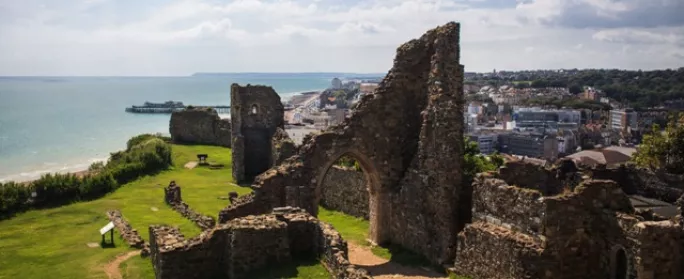‘Winning the battle of Hastings is key to improving education in coastal towns’
Heath Monk, chief executive of Future Leaders, writes:
A few weeks ago I visited Hastings Academy to meet three young teachers on the Teach First programme. Before taking up their new roles, they had thought of Hastings as a charming relic of a bygone era.
However, they found that behind the Georgian townhouses and fishing huts are estates rife with educational disadvantage. Being good Teach First participants, they’ve made a commitment to stay and become part of a growing movement, heralded by Ofsted’s Unseen Children report, to raise the attainment of poor white British children in rural and coastal towns.
Hastings, in my view, is a town that’s easy to fall in love with. I was born there and still live there today. I’m married to one of the secondary school heads. However, besides the faded seaside glamour, it possesses three characteristics that are peculiar to the coastal towns and which help explain some of their economic and social challenges: seasonal jobs, poor transport and plentiful housing stock.
Seaside resorts exist on low-skilled, seasonal work. Unlike many industrial towns, which have had their principal source of income taken away permanently, seaside towns still attract enough visitors to keep them alive, even if in starkly reduced circumstances. There’s less urgency to change and no metaphorical burning platform (though there is burned platform in the very tangible form of Hastings Pier).
Poor transport links exacerbate the problem. Hastings isn’t much further from London than Brighton, but it takes almost twice as long via an appalling train service, and, instead of a motorway, it is reached only by a single carriageway A-road. Bearing in mind that half of the town is surrounded by the sea, it can actually be quite difficult to get to Hastings and even harder to leave, even if you have the desire and the resources.
Finally, many poorer families have relocated to towns like Hastings because of the surplus accommodation once filled by holiday-makers. The neighbouring villages have little or no capacity, so many of East Sussex’s most vulnerable residents end up concentrated in Hastings, in areas such as Ore or Hollington.
All of this leads to a vicious cycle where seaside towns provide progressively fewer opportunities for children to transcend their start in life and fulfil their potential. We know education can break this cycle. In London, the attainment of children eligible for free school meals or with English as an additional language has risen dramatically, supported by a network of school leaders working together, the inherent dynamism of a metropolitan culture and the proximity of some of the world’s most prestigious institutions.
Hastings does not have those advantages. It is largely a white British monoculture; it lacks big-ticket employers and its four secondary schools must always keep one eye on attracting enough of the town’s children to stay viable. In such circumstances, school leaders must be even more committed to creating a culture, both within their schools and within the town as a whole, in which teachers strive to be outstanding and in which children want to learn and develop. They must create expectations and experiences that help children to realise that hard work can lead them to places and opportunities that they have never considered.
My organisation finds and trains teachers who have the potential to be Future Leaders: inspirational and effective headteachers of challenging schools. All of them work in schools that serve England’s most disadvantaged areas, and there are five in Hastings. We’re increasingly recruiting from and for these coastal towns and others are recognising this need, too.
Last year, ARK Academies welcomed two new Hastings schools into its ranks. Obviously, schools aren’t going to solve a town’s economic problems. Their role is to challenge the cultural limitations that can develop in such an environment, raise attainment and build bridges that will give a poor student more choices for their future.
It’s nearly 950 years since the Duke of Normandy erected a temporary castle on the top of Hastings’ West Hill. For him, Hastings was the gateway to a whole realm of opportunity. Today, for too many people, it is a final destination. This is a Battle of Hastings that the English cannot afford to lose.
Keep reading for just £1 per month
You've reached your limit of free articles this month. Subscribe for £1 per month for three months and get:
- Unlimited access to all Tes magazine content
- Exclusive subscriber-only stories
- Award-winning email newsletters




